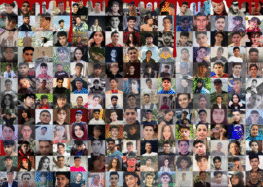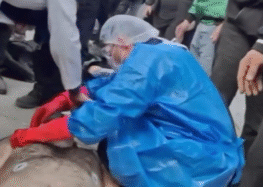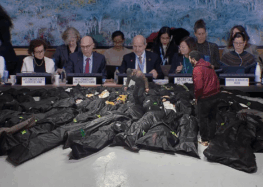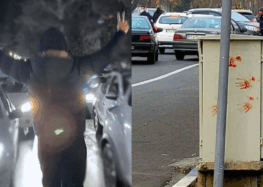“The Victim’s Family Did Not Forgive Shahla Jahed Until The Last Moment,” Says Lawyer
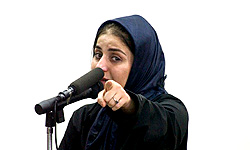
Shahla Jahed was executed today.
Abdolsamad Khorramshahi, Shahla Jahed’s lawyer, attended her execution this morning. “I just can’t believe it. I’m not feeling well. Shahla just kept crying; she didn’t say anything. I went forward and told her to talk, but she only cried. The victim’s family did not give their consent until the last minute. All the people who were there asked them to forgive her, but unfortunately they didn’t accept. Nasser Mohammadkhani was there, too, and said nothing,” Khorramshahi said in a telephone interview with the International Campaign for Human Rights in Iran.
Shahla Jahed was arrested in the Fall of 2002 on charges of murdering Laleh Saharkhizan, wife of Nasser Mohammadkhani, the famous Iranian soccer player. She was hung at 6:00 a.m. on Wednesday morning, after eight years in prison.
“Shahla is no more. Everything has ended and the case is closed. It does not matter anymore to talk about the ambiguous points of the case,” Abdolsamad Khorramshahi told the Campaign about the untold pieces of Shahla Jahed’s case and its many ambiguous points.
According to ISNA News Agency, Shahla Jahed’s execution was attended by Judge Esmatollah Jaberi, Assistant Judge from the Tehran Criminal Court’s Implementation Unit, and after legal procedures, the execution was implemented by Laleh Saharkhizan’s kin.
Shahla Jahed had spent the past nine years at Evin Prison. In a letter to Sadegh Larijani, Head of the Judiciary, Jahed had asked him to look into her case. “I had a sentence of three years in prison. I have now served nine years in prison and I ask you to end my state of limbo and to make a decision about my case,” she wrote. Following this letter, Head of the Judiciary announced that Shahla Jahed had received Qisas orders and that henceforth, everything depended on the victim’s family.
During the past nine years, Shahla Jahed’s execution orders had been stayed three times and seven judges who were involved in her case, ruled that she was innocent. In February 2007, then head of the Judiciary, Ayatollah Shahroudi, announced that Shahla Jahed’s case had form and content shortcomings, and that investigations in her case had to be conducted anew, and that a new judge would have to be assigned to the case. Many thought that this time, too, there would be a stay of execution. Over the past few days, Amnesty International had requested a stay of execution for Shahla Jahed.

